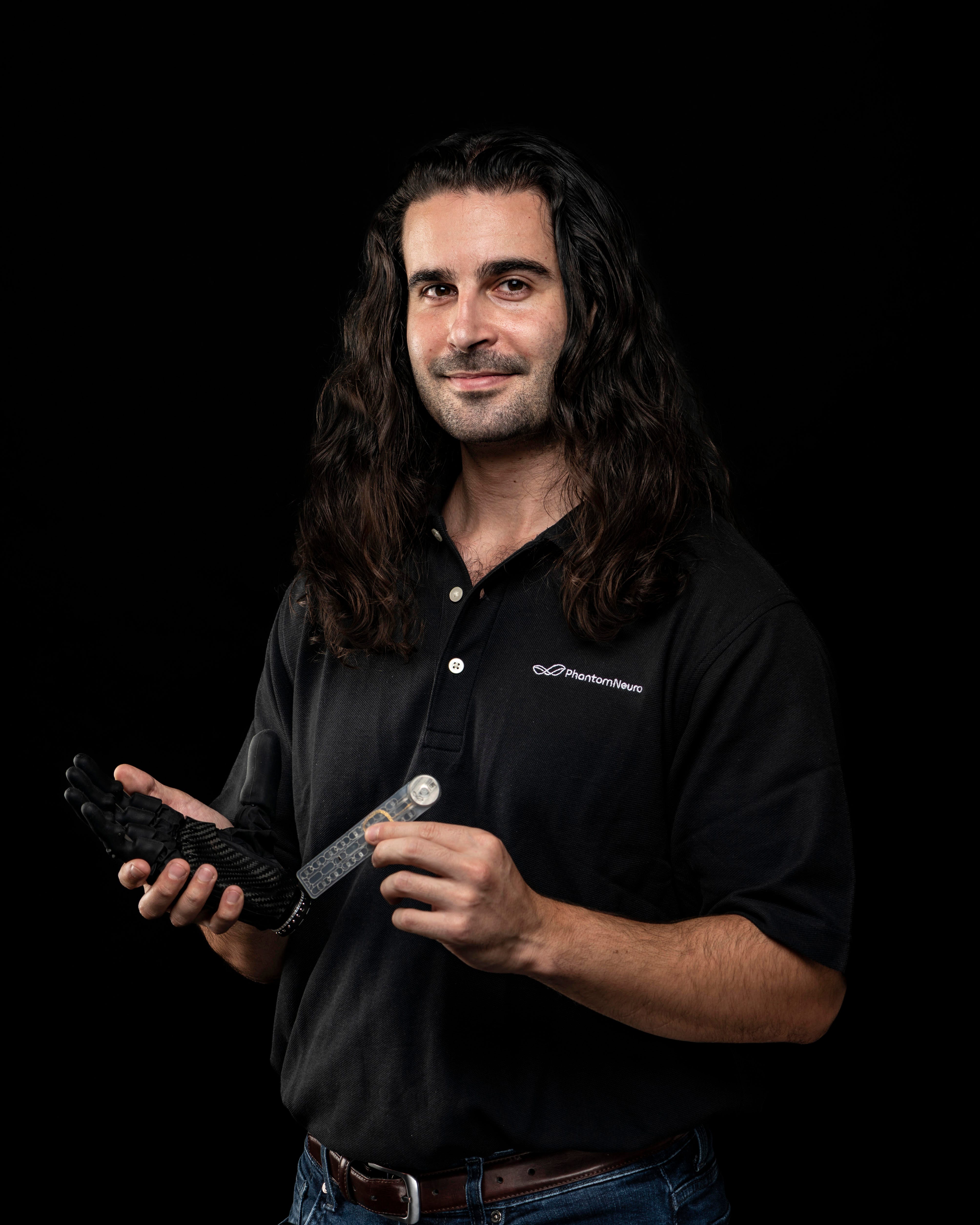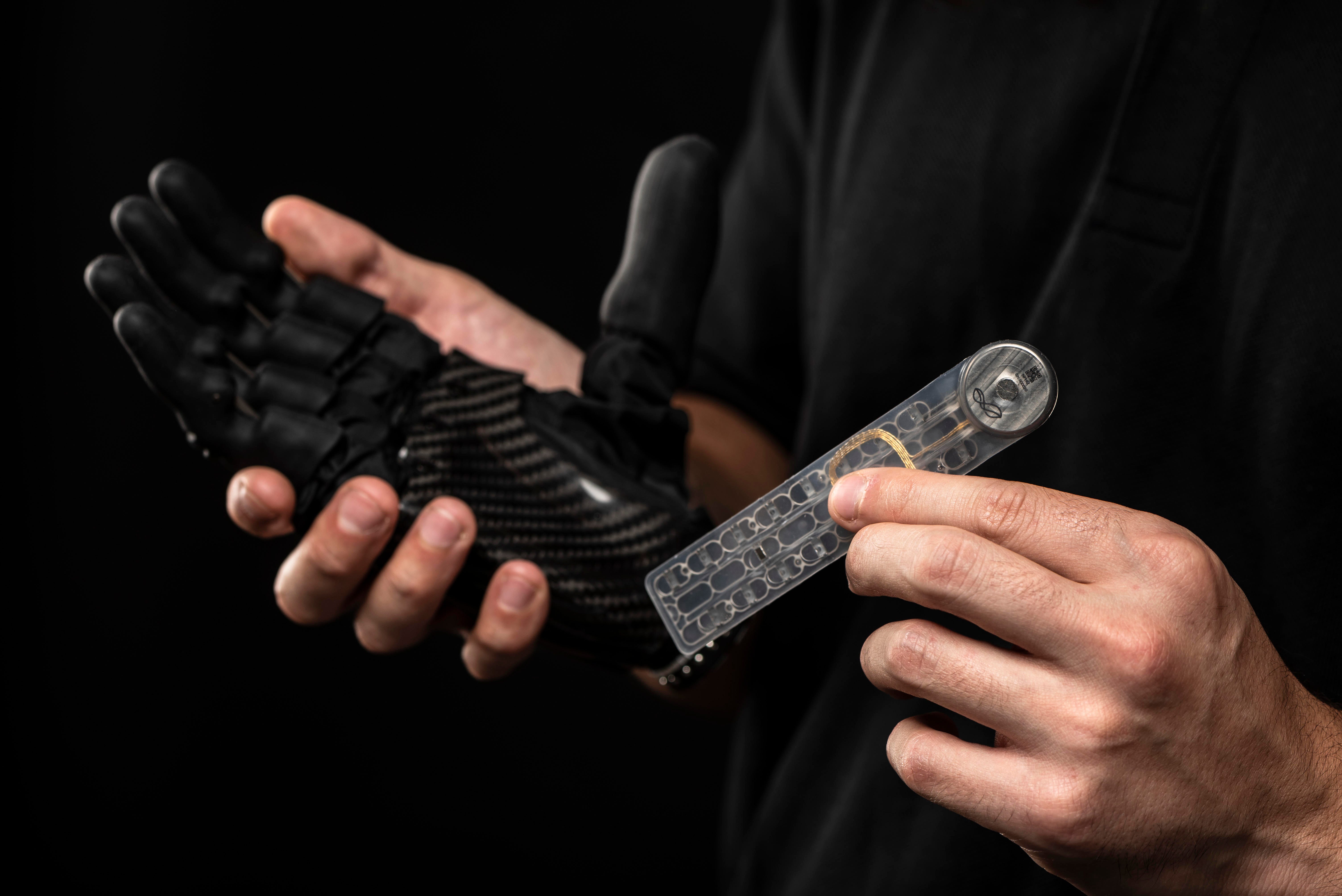
Phantom Neuro
Every time you move, your brain and body emit small electric currents.
One startup wants to capture signals deep in muscles, decode them, and use artificial intelligence to power prosthetic limbs. Phantom Neuro, an Austin-based startup founded in 2020, makes an implantable device that it says does exactly that. And the Defense Department has taken notice.
The startup recently partnered with the Defense Advanced Research Projects Agency, or DARPA, which invested roughly $300,000 through its Commercial Strategy Office. Launched in 2019, aims to fast-track tech that could be vital to the military.
The startup first began working with DARPA in early 2025. As part of the initiative, the startup also received a volunteer mentor to help it connect with customers and investors. Sha-Chelle Manning, DARPA’s chief of commercial strategy, told Business Insider she hopes to ensure that “the very best of DARPA technology gets scaled and into the market and is made available to the warfighter.”
Phantom Neuro isn’t the first startup in the Commercial Strategy Office’s portfolio, and DARPA declined to disclose the number of other participants in the initiative.
In April, the startup raised $19 million in a Series A fundraise led by Ottobock, a German prosthetics and medical device company. Breakout Ventures, Draper Associates, and others participated.
“We’re not just looking for financial returns,” Manning said. “We’re looking for the strategic returns that this technology that we’ve already invested in is actually going to be a product, service, or capability that impacts the warfighter.”
Phantom Neuro founder and CEO Connor Glass said DARPA’s backing has helped him convince venture capitalists to back the startup despite its complex tech and possible lengthy timelines to regulatory approval. “Raising capital for implantable technologies is hard,” he told Business Insider. “The vast majority of venture capital firms don’t like to dabble in that space because it has a bunch of regulatory hurdles.”
“Having DARPA on board is a massive validator for a risky technology like ours,” Glass added.
Phantom Neuro says its electrode array, which is implanted under the skin, uses sensors to detect electric currents in muscles. Those signals are then translated into instructions for a prosthetic. Glass said the company has a working prototype of the device, and is currently conducting pre-clinical testing with the hopes of implanting humans by the end of 2025 or beginning of 2026.
The company says it has 15 patents submitted and granted covering design, utility, software, and robotics. So far, the company has secured two designations from the US Food and Drug Administration meant to help accelerate commercialization.
To clinch the DARPA partnership, Phantom Neuro’s technology was “validated” by a DARPA program manager, Manning said — meaning that the startup had to “prove in a repeatable fashion” that its neural interface “delivers a stated result,” she added. The company says its technology decoded 11 hand and wrist movements with 94% accuracy, according to a press release from March.

Phantom Neuro
Because of its use cases for civilians and warfighters, Phantom Neuro is textbook dual-use startup, or a company that makes tech with both commercial and military applications. The Pentagon has been leaning into dual-use bets: In May, the Defense Department’s emerging tech arm launched a mentorship program for startups developing such products.
In the partnership, DARPA also helps startups like Phantom Neuro choose the right investors — ones without ties to what DARPA deems “adversarial capital,” or money from foreign adversaries like China. “We have a huge amount of adversarial influence capital that’s coming in and preventing companies from being able to sell to the military,” Manning said. “Sometimes, it’s to harm those companies so that they can’t scale or raise other capital.”
“If I’m a small company and I’m doing something really important for national security, I could easily be a target for a Chinese influence venture fund,” she added.
Glass, who is interested in surgery because of “the massive impact you can have on someone in such a short duration of time,” studied biology in college and attended medical school at the University of Oklahoma with the goal of working in reconstructive surgery, particularly on human-machine interaction. A research fellowship focused on implantable sensors at Johns Hopkins afforded him “insight into the technology side of things,” he said, and revealed “this disconnect between academic proof of concept — like, ‘Can something work?’ — and commercial realization of it — like, ‘Can you scale it and implement it at large?'”
A swelling roster of startups are also building neurotech, an investment area that has garnered increased attention due to Neuralink, Elon Musk’s brain-implant company — probably the best-known of the bunch. Though Neuralink is focused on brain-computer interfaces rather than controlling prosthetic devices.
Glass sees Phantom Neuro’s approach as more viable for widespread adoption: “I don’t necessarily believe that everyone can line up to get a brain implant,” he said. “Sensors that get placed under the skin in your limbs can give you some radically new capabilities as a human. For the right price point and with the right safety profile, I believe that is something that people will elect to get.”
The post The Department of Defense is betting on a startup that wants to control prosthetic limbs with muscle memory appeared first on Business Insider.




